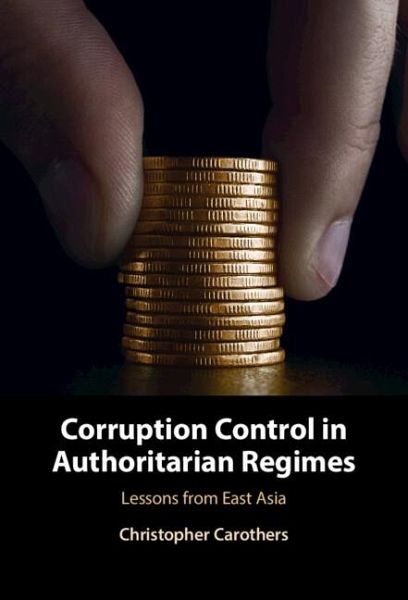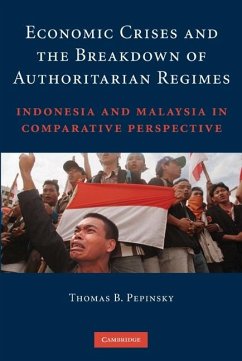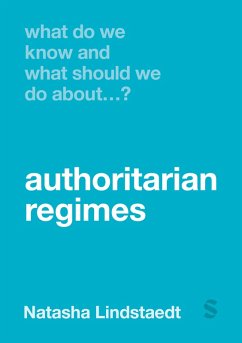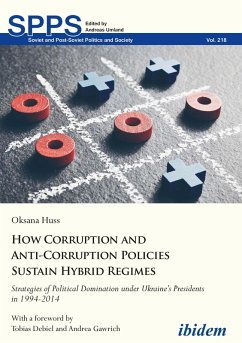
Corruption Control in Authoritarian Regimes (eBook, ePUB)
Lessons from East Asia
Versandkostenfrei!
Sofort per Download lieferbar
62,95 €
inkl. MwSt.
Weitere Ausgaben:

PAYBACK Punkte
31 °P sammeln!
Corruption is rampant in many authoritarian regimes, leading most observers to assume that autocrats have little incentive or ability to curb government wrongdoing. Corruption Control in Authoritarian Regimes shows that meaningful anti-corruption efforts by nondemocracies are more common and more often successful than is typically understood. Drawing on wide-ranging analysis of authoritarian anti-corruption efforts globally and in-depth case studies of key countries such as China, South Korea and Taiwan over time, Dr. Carothers constructs an original theory of authoritarian corruption control....
Corruption is rampant in many authoritarian regimes, leading most observers to assume that autocrats have little incentive or ability to curb government wrongdoing. Corruption Control in Authoritarian Regimes shows that meaningful anti-corruption efforts by nondemocracies are more common and more often successful than is typically understood. Drawing on wide-ranging analysis of authoritarian anti-corruption efforts globally and in-depth case studies of key countries such as China, South Korea and Taiwan over time, Dr. Carothers constructs an original theory of authoritarian corruption control. He disputes views that hold democratic or quasi-democratic institutions as necessary for political governance successes and argues that corruption control in authoritarian regimes often depends on a powerful autocratic reformer having a free hand to enact and enforce measures curbing government wrongdoing. This book advances our understanding of authoritarian governance and durability while also opening up new avenues of inquiry about the politics of corruption control in East Asia and beyond.
Dieser Download kann aus rechtlichen Gründen nur mit Rechnungsadresse in A, B, BG, CY, CZ, D, DK, EW, E, FIN, F, GR, HR, H, IRL, I, LT, L, LR, M, NL, PL, P, R, S, SLO, SK ausgeliefert werden.













